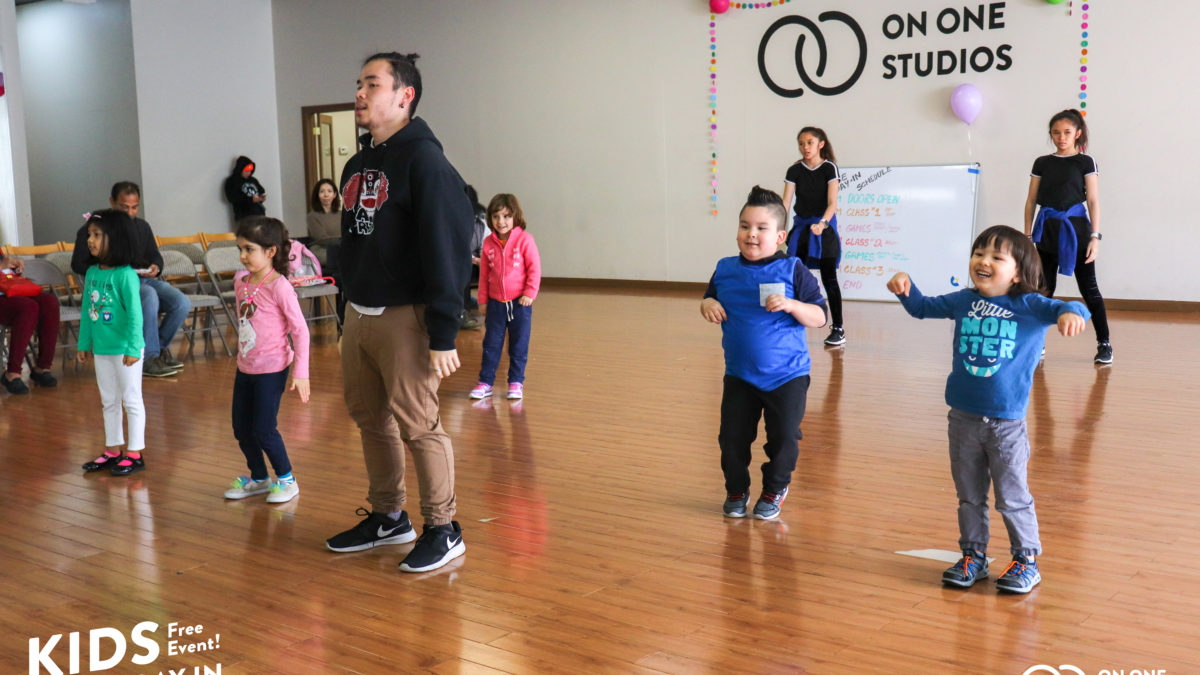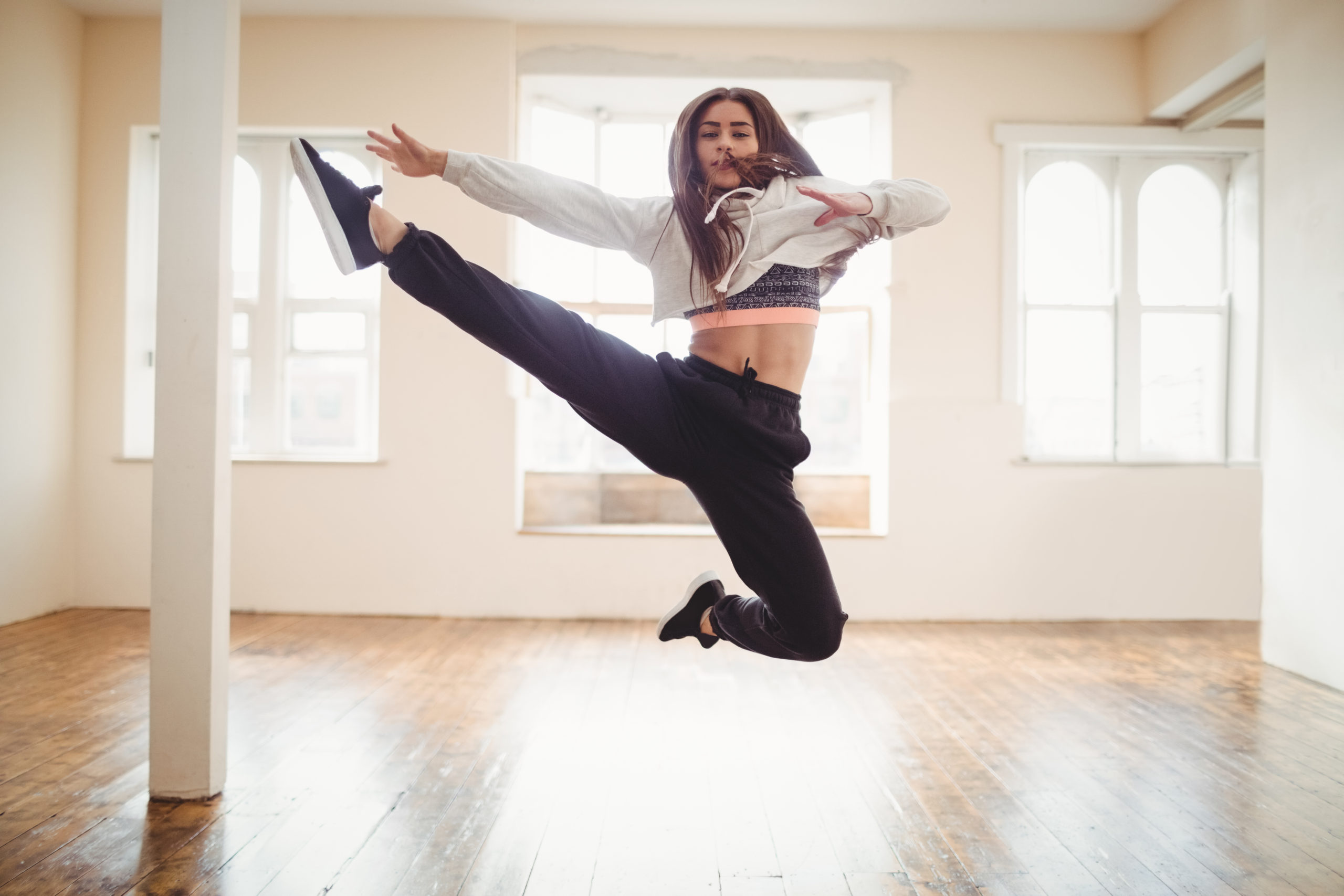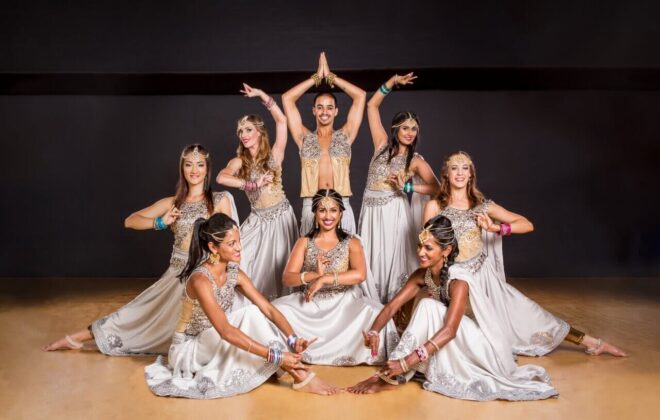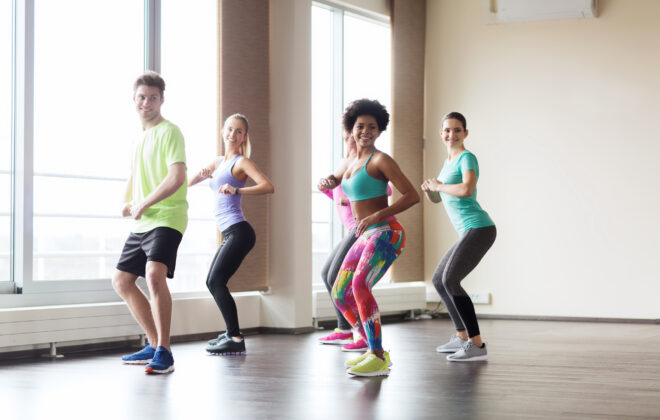Children’s Group Dances: Beginners Guide and Expert Tips
Learning to dance is an exciting journey that children embark upon, and it’s an adventure that can lead to immense creativity, joy, and personal growth. In this age of digital distractions, dance offers a refreshing, physical, and social outlet.
Group dances allow children to express themselves, develop skills, and create fun memories with peers. Whether you’re a parent seeking a productive, engaging activity for your child, you can consider On One Studios your ideal partner. We offer outstanding programs to enhance and improve your child’s dance skills while motivating them emotionally to get better physical results.
Read on to learn more about children’s group dances, their benefits, and how they can enhance your child’s talents and interpersonal skills.
What is a Children’s Group Dance?
Group dances have long been a part of human cultures and celebrations. These choreographed dances, performed in groups of three or more, are essential to social events like school activities, birthday parties, and cultural events. From line dancing to square dancing, these dances embody the spirit of unity, coordination, and joyous expression.
Children’s group dances, particularly in a school setting, offer a platform for friendly competitions and class activities. They present an opportunity to foster teamwork, build confidence, and create shared memories. The routines are often easy-to-follow, designed to be fun, engaging, and suitable for children’s ability levels.
Moreover, these dances expose children to different cultures and traditions, promoting cultural sensitivity and global understanding. They are often structured but with plenty of room for creativity, letting children express themselves freely.
Benefits of Dancing as a Social Activity for Young Children
Group dance classes offer an array of benefits beyond physical fitness. They can enhance cognitive skills, build self-confidence, and encourage social connections among children. Here is an analysis of these benefits:
Develops Better Cognitive Skills
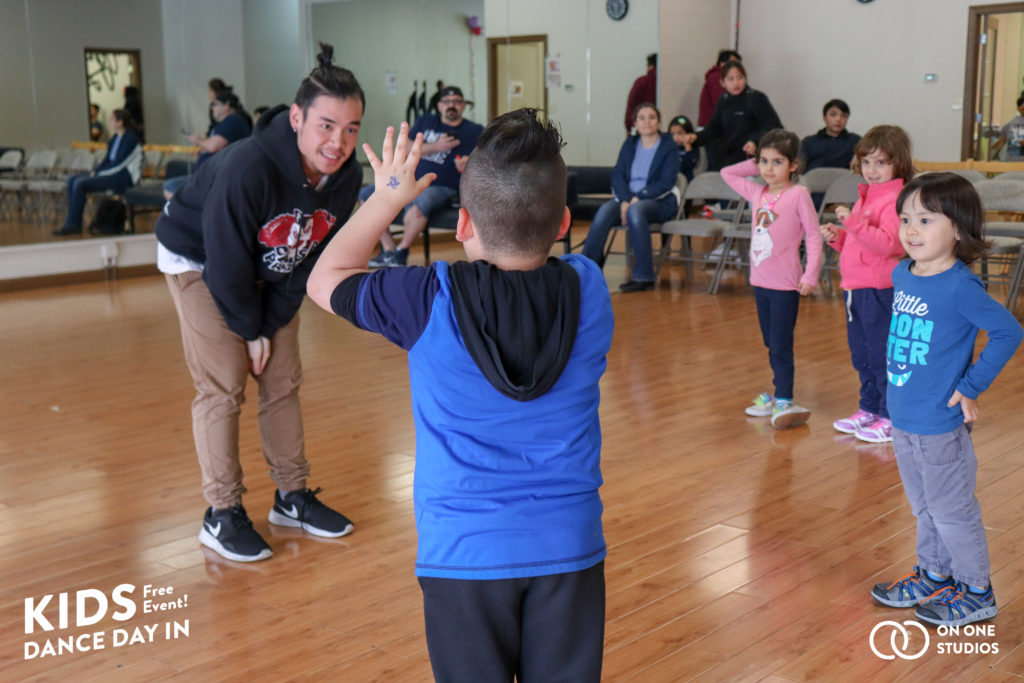
Group dance lessons often involve learning new routines. This requires memory, focus, and understanding of the rhythm, enhancing cognitive abilities. The understanding of non-verbal cues also gets amplified as children learn to express and interpret messages through body movements.
Simultaneously, they are also learning about cause and effect, sequencing, patterning, and spatial relationships, which are vital in their mathematical learning journey. The regular practice of dance moves also improves fine and gross motor skills, which are crucial for a child’s overall physical development.
Builds Self-Confidence
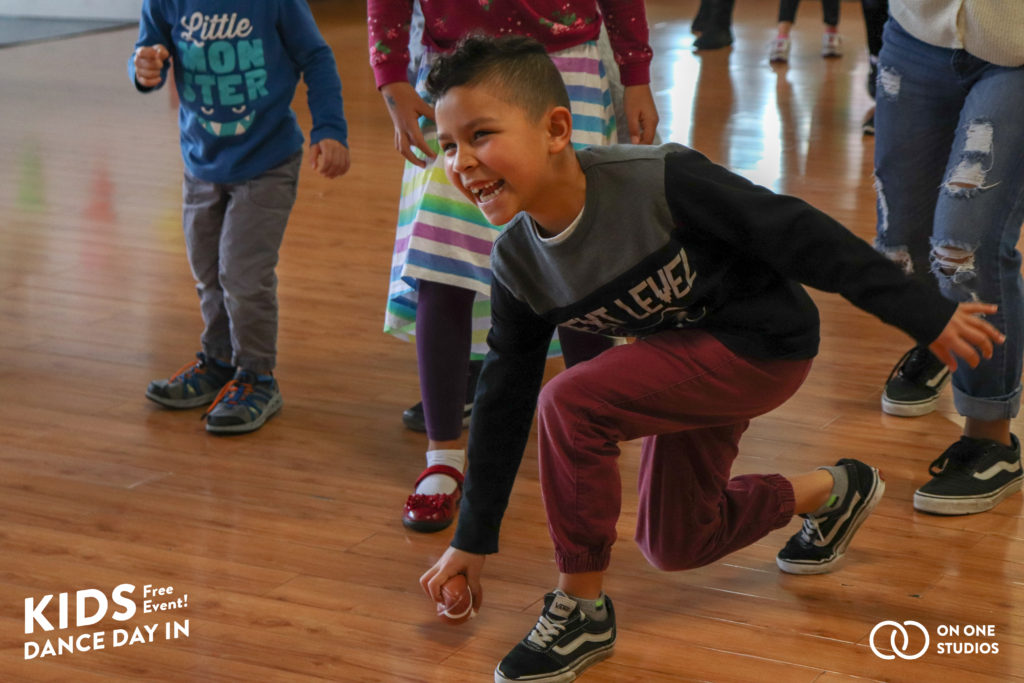
Mastering a new dance move or performing in front of an audience can be a significant confidence booster for children. It helps them develop perseverance and an appreciation for the effort that goes into achieving a goal.
Moreover, the constructive feedback they receive helps them understand that it’s okay to make mistakes and learn from them. It also introduces them to the concept of constructive criticism and how it can aid in personal improvement.
Establishes Social Connections
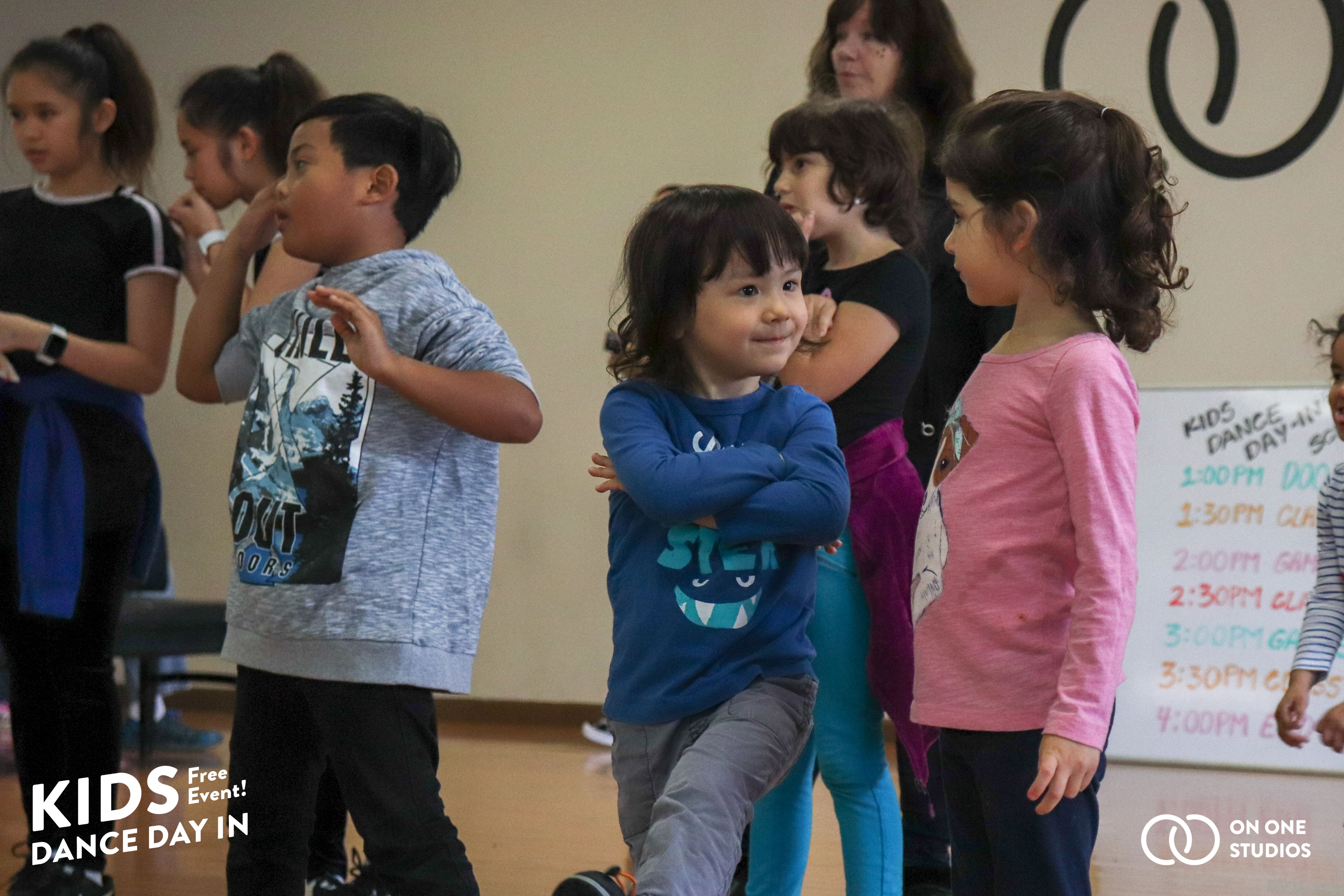
In a world dominated by screens, group dance lessons offer a much-needed break and an opportunity to make real-world connections. Children can make new friends and build social skills by interacting with different students.
They learn about collaboration and communication, the art of negotiation, compromise, and problem-solving, which are essential life skills. Also, it aids in developing empathy as they understand and respect the feelings and perspectives of their fellow dancers.
Promotes Learning and Adaptability

Dance is a continuous learning process. Children learn to adapt and grow as they get exposed to different dance partners and styles. It allows them to think on their feet and improves their ability to handle new situations.
Moreover, their innate creativity gets nurtured as they explore various ways to express a concept or a feeling through their dance. They learn to appreciate diversity and develop a broader perspective on the world around them.
4 Group Dance Routines Children Can Perform
Group dance routines for children range from simple circle dances to more complex line and square dances. These routines vary on the pricing of dance classes but are all designed to be fun, engaging, and suitable for kids of different ages.
Here is an analysis of these dance routines:
Circle Dances
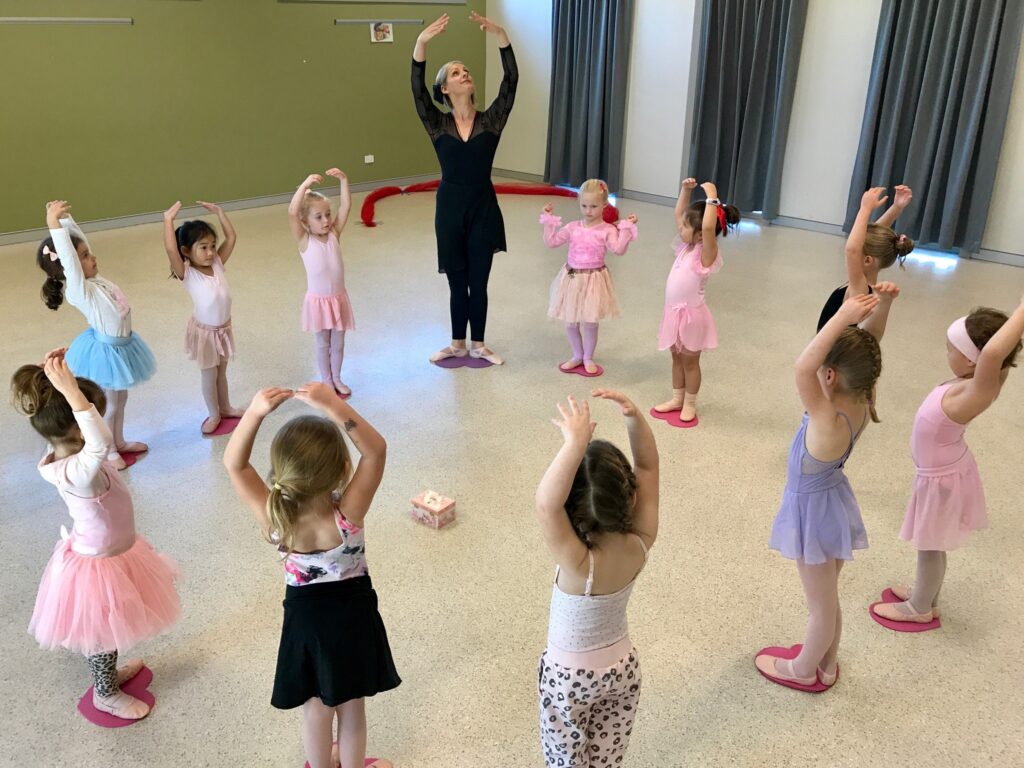
Circle dances, as the name suggests, involve participants forming one or more circles and executing synchronized moves. This dance style encourages cooperation, synchronization, and community among participants.
Moreover, as the children rotate in the circle holding hands, it fosters a sense of unity and camaraderie. They learn the importance of individual contribution to group performance, teaching them accountability and responsibility.
Line Dances

Line dances are formation dances where participants, not in physical contact with each other, execute the same choreographed moves simultaneously. It’s a fun, engaging way for children to learn about rhythm, coordination, and teamwork.
Square Dance

Square dances are delightful social dances that combine teamwork with enjoyable music and moves. This traditional dance is a great way to get kids up, moving, and developing skills like memorization and coordination.
Hora
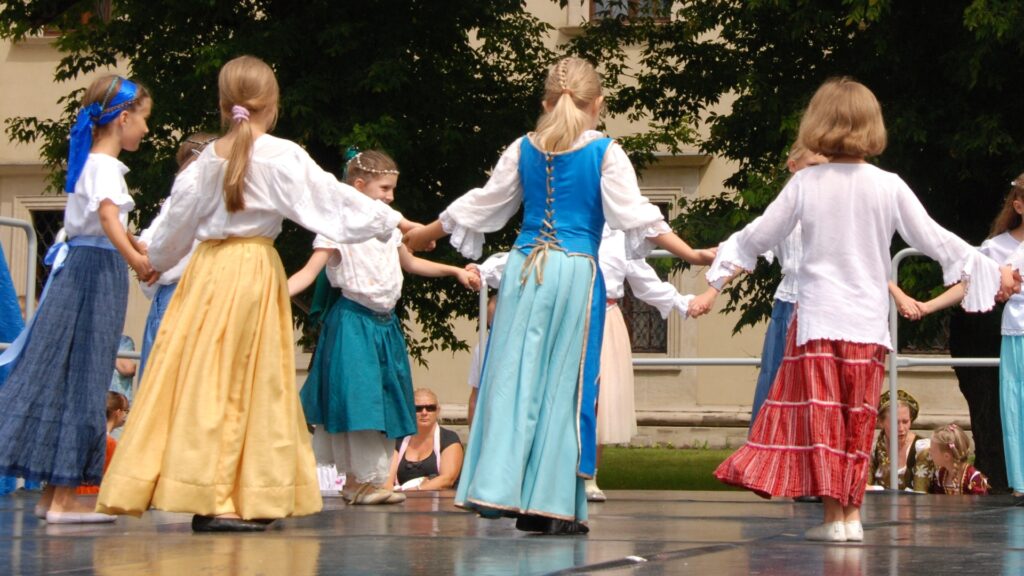
The Hora, a traditional dance from Israel and Eastern Europe, is performed in a circle with a 4-count “grapevine” step. It’s a joyous dance that can be easily learned and performed by children.
How Can Young Dancers Improve Their Dancing Techniques?
Practice and professional guidance are vital to improving dance techniques. Participating in dance classes and lessons under a professional mentor can help young dancers enhance their skills and explore different dance styles.
You can also join a kids’ program dance course where your kid can get a comprehensive learning experience, from essential to advanced dance moves. Sign up for these classes at On One Studios to enjoy affordable and reliable classes that will give your child 100% satisfaction and growth.
Frequently Asked Questions
Here are some of the commonly asked questions about kids’ group dances:
What is the best dance for kids to start?
There’s yet to be a definitive answer, as it largely depends on personal preferences, physical abilities, and age. However, most children start with styles like hip-hop, ballet, or group dances as they are generally considered more accessible and fun.
What types of dance are popular with children these days?
Dance trends often vary by age, location, and cultural influence. However, hip-hop, ballet, and group dances remain popular among children. Dance challenges inspired by social media platforms like TikTok influence children’s dance preferences.
How do you choreograph a group dance?
Choreographing a group dance involves selecting a suitable music piece, breaking down the song into different sections, and creating a sequence of dance moves that fit the music. Considering the dancers’ abilities and ensuring the routine is fun and engaging is essential.
What is it called when a group dances in public?
When a group unexpectedly performs a choreographed dance in a public place, it’s often called a “flash mob.”
Conclusion: Are You Searching for the Best Group Dance Classes for Your Child?
Group dances are a fantastic way to bring children together, helping them to develop skills, enjoy themselves, and express creativity. The world of dance offers endless possibilities, whether your child is a beginner or already has some moves up their sleeves.
At On One Studios, we provide all kinds of children’s group dances, from beginner’s classes to advanced ones. Our experienced and qualified mentors give children the best guidance and help them hone their dancing skills. Sign up for our classes today and let your child explore the wonderful world of group dance.

